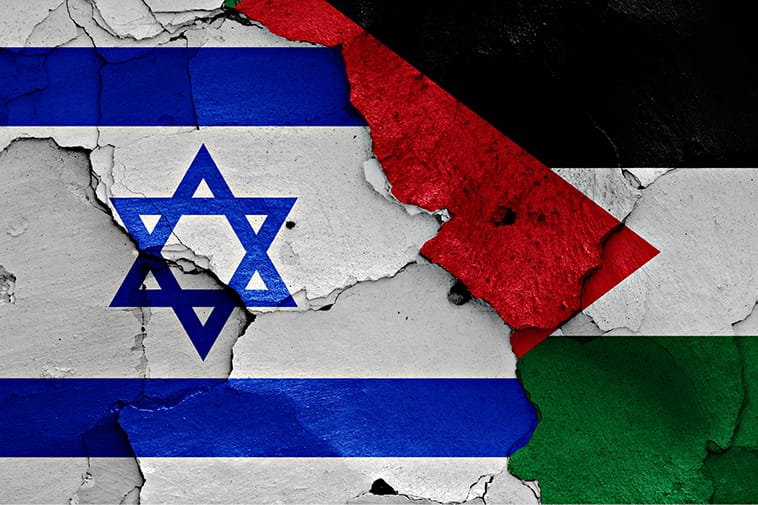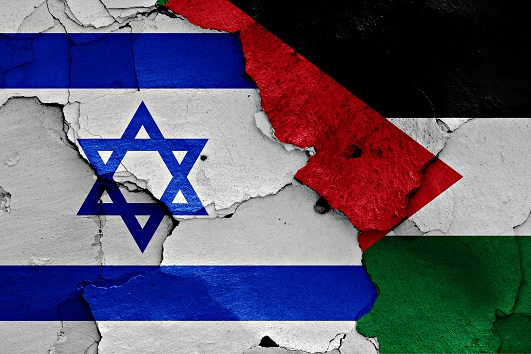Every time a significant confrontation—or worse, a war—erupts between Israel and Hamas, the repercussions are dire and far-reaching. Lives are tragically lost, homes are obliterated, and essential infrastructure such as schools and office buildings suffer severe damage or become completely unusable. Hamas, an armed faction and a Palestinian political movement based in Gaza, has been at the forefront of these clashes with Israel, leading to acute humanitarian crises that devastate the civilian population.
The most recent significant conflict between Israel and Hamas occurred in May 2021, enduring for 11 harrowing days before a ceasefire was successfully negotiated. This brief but intense period of violence resulted in substantial casualties and widespread destruction within Gaza, further aggravating already dire living conditions characterized by high poverty and unemployment rates. The infrastructure damage exacerbated the struggles faced by the residents of Gaza, making everyday life increasingly untenable.
Reports from this conflict indicated that over 250 individuals lost their lives in Gaza, a majority of whom were civilians. Additionally, thousands were displaced from their homes, creating a massive humanitarian crisis. Tens of thousands of Gazans were compelled to seek refuge in areas deemed safer, underscoring the persistent and escalating humanitarian challenges that arise in the wake of such violent confrontations.
The Ongoing Nature of the Conflict
As of now, the conflict between Palestine and Israel remains unresolved, with daily reports of increasing casualties. It is estimated that approximately 70% of the victims are women and children, highlighting the disproportionate impact on the most vulnerable populations. The relentless cycle of violence continues to erode the prospects for peace and stability in the region.
Accusations of Genocide and International Legal Proceedings
Israel has faced significant criticism on the international stage, with accusations of perpetrating genocide against the Palestinian people. In January 2024, the International Court of Justice (ICJ) initiated a trial to examine alleged crimes against humanity committed by Israel. This trial represents a crucial development in holding parties accountable under international law and seeking justice for the affected populations.
The Origins of the Israeli and Palestinian States
The roots of the Israeli-Palestinian conflict can be traced back to the post-World War II era, during which the Palestinian region was under British administration as part of the British Mandate for Palestine (1920-1948). This mandate granted Palestine the right to determine its future, including the possibility of independence from British rule. However, Britain’s inability to effectively mediate the escalating tensions between the Arab and Jewish communities in Palestine led to the handover of the issue to the United Nations (UN).
In response, the UN General Assembly adopted Resolution Number A/RES/181(II), commonly known as the Partition Plan, on November 29, 1947. This resolution proposed the division of Palestine into separate Jewish and Arab states. However, the Arab community and neighboring Arab countries rejected the plan, leading to increased hostilities.
Shortly thereafter, in 1948, the Jewish community declared the establishment of the State of Israel. The UN Partition Plan had also delineated the territorial boundaries for Israel, but subsequent conflicts resulted in Israel controlling approximately 60% of the land initially allocated for Palestine. These territorial changes were primarily achieved through military actions against neighboring countries, further complicating the quest for a peaceful resolution.

Israel’s Violations of International Law Against Palestine
In the aftermath of World War II, several legal norms were established to govern international relations and conflicts. Key among these are:
A. Self-Determination: The principle that nations have the right to determine their political status and pursue their economic, social, and cultural development.
B. Uti Possidetis Juris: A principle in international law that territory and boundaries of new states should follow pre-existing administrative boundaries.
C. Non-Use of Force: The prohibition against the use of force in international relations, except in cases of self-defense or when authorized by the UN Security Council.
These norms were enshrined in various UN resolutions and international agreements, including the Oslo Accords of 1993. The Oslo Accords mandated that Israel recognize Palestine’s authority over the Gaza Strip and the West Bank regions. However, since the establishment of Israel, there have been numerous violations of these international laws by Israel, particularly concerning its control and military actions in areas designated for Palestine.
Specific Violations Documented by Legal Authorities
A. Advisory Opinion by the International Court of Justice (ICJ) in 2004: The ICJ issued an advisory opinion regarding the construction of a wall in the Occupied Palestinian Territory. The court concluded that Israel had violated Palestine’s right to self-determination through the construction of the wall, which impeded the movement and access of Palestinians to essential services and areas.
B. UN General Assembly Resolution A/RES/67/19 (2012): This resolution reaffirmed the right to self-determination for the Palestinian territories occupied by Israel since 1967, including the Gaza Strip, the West Bank, and East Jerusalem. The resolution underscored the illegality of Israeli settlements and other measures that impede the establishment of a sovereign Palestinian state.
C. International Criminal Court (ICC) Pre-Trial Chamber I Decision (2021): The ICC’s Pre-Trial Chamber I recognized the Gaza Strip, the West Bank, and East Jerusalem as Palestinian territories occupied by Israel since 1967. This designation has significant implications for the jurisdiction of the ICC and the prosecution of potential war crimes and crimes against humanity committed in these areas.
International Law Solutions for Mediating the Israeli-Palestinian Conflict
The situation between Israel and Palestine continues to deteriorate, with Israeli attacks on Palestinian territories intensifying each year. The global community widely condemns these actions, often characterizing them as acts of genocide against the Palestinian people. Given this persistent violence, the question arises: What solutions does international law offer to mediate and resolve this enduring conflict?
The Role of International Law and Enforcement Mechanisms
International law plays a critical role in providing a framework for resolving conflicts and holding parties accountable for violations. However, it is essential to recognize that international law lacks a centralized enforcement institution. Consequently, the responsibility for enforcing legal norms and addressing violations falls upon individual nations and international bodies such as the United Nations (UN).
Possible Responses by the International Community
Countries around the world can respond to the Israeli-Palestinian conflict through various means, primarily categorized into:
A. Persistent Rejection: Many nations persistently reject Israel’s actions that violate international law, advocating for sanctions, diplomatic pressure, and other measures to compel Israel to adhere to legal norms and respect Palestinian rights.
B. Recognition and Support: Conversely, some countries may choose to recognize Israel’s positions or support its actions, often influenced by geopolitical alliances, economic interests, or regional dynamics.
Currently, the predominant international response leans towards the persistent rejection of Israel’s actions that contravene international law. This stance emphasizes the need for accountability and adherence to legal standards to protect human rights and uphold justice.
The Path to Conflict Resolution
For a sustainable resolution to the Israeli-Palestinian conflict, it is imperative that any proposed solution garners broad recognition and support from the international community. This recognition is crucial to ensure that the agreed-upon terms are respected and implemented effectively by both parties.
International law suggests that the conflict’s resolution will be complete only if there is mutual recognition of the solution by other nations, based on an agreement reached between the conflicting parties themselves. This approach underscores the importance of diplomatic negotiations and international support in achieving lasting peace.
Indonesia’s Role and the Global Push for Peace
Indonesia, along with many other nations, has been actively advocating for the recognition of Palestine as an independent state. The country supports initiatives led by the UN to revive peace negotiations between Palestine and Israel, aiming for a two-state solution that would establish a sovereign and viable Palestinian state alongside the State of Israel.
Indonesia’s Advocacy for a Two-State Solution
Indonesia’s support for the two-state solution is rooted in its commitment to international law, human rights, and the principles of self-determination. By championing this cause, Indonesia seeks to contribute to a peaceful and equitable resolution that addresses the legitimate aspirations of both Palestinians and Israelis.
The Importance of International Support
The success of peace negotiations and the implementation of a two-state solution hinge on the robust support of the international community. Countries like Indonesia play a pivotal role in mobilizing diplomatic efforts, providing humanitarian assistance, and advocating for policies that promote reconciliation and coexistence.
The Humanitarian Impact of the Conflict
The ongoing conflict between Israel and Hamas has profound humanitarian implications, particularly for the civilian population in Gaza and the West Bank. The destruction of infrastructure, displacement of families, and loss of lives create an environment of fear, uncertainty, and deprivation.
Displacement and Refugee Crises
Frequent conflicts lead to mass displacement, forcing thousands of Palestinians to flee their homes in search of safety. This displacement exacerbates existing challenges, including overcrowded refugee camps, inadequate access to basic services, and increased vulnerability to exploitation and abuse.
Economic and Social Consequences
The economic impact of the conflict is equally devastating. High unemployment rates, poverty, and the destruction of businesses and industries hinder economic development and perpetuate cycles of dependency and deprivation. Socially, the trauma of violence and loss affects the mental and emotional well-being of individuals and communities, leading to long-term psychological scars.
The Role of International Organizations and Agreements
International organizations, such as the United Nations and the International Criminal Court, play crucial roles in addressing the Israeli-Palestinian conflict. Through resolutions, legal proceedings, and humanitarian initiatives, these organizations strive to promote peace, uphold justice, and provide relief to affected populations.
The United Nations
The UN has been at the forefront of efforts to mediate the conflict, proposing various peace plans and facilitating negotiations between the parties involved. UN agencies also provide humanitarian assistance, support reconstruction efforts, and advocate for the protection of human rights in the region.
The International Criminal Court (ICC)
The ICC serves as a judicial body to prosecute individuals for war crimes, crimes against humanity, and other serious offenses. By holding perpetrators accountable, the ICC aims to deter future violations and contribute to a culture of accountability and respect for international law.
Challenges to Achieving Peace and Justice
Despite the frameworks and mechanisms in place, achieving peace and justice in the Israeli-Palestinian conflict faces numerous challenges. These include:
A. Political Obstacles: Deep-seated political divisions, mistrust between parties, and conflicting national interests complicate the negotiation process and hinder the implementation of agreements.
B. External Influences: Geopolitical dynamics, including the involvement of regional and global powers, can either facilitate peace efforts or exacerbate tensions, depending on the nature of their interventions.
C. Legal and Institutional Barriers: The lack of a centralized enforcement mechanism for international law means that violations often go unpunished, undermining the rule of law and eroding trust in legal institutions.
D. Humanitarian Concerns: Immediate humanitarian needs often take precedence over long-term peace initiatives, diverting attention and resources away from sustainable solutions.
The Path Forward: Towards Sustainable Peace
To move towards a sustainable and just peace in the Israeli-Palestinian conflict, several steps are essential:
A. Renewed Commitment to Negotiations: Both parties must recommit to sincere and meaningful negotiations, prioritizing dialogue over violence and seeking mutually acceptable solutions.
B. Strengthened International Support: The international community must provide robust support for peace initiatives, including diplomatic backing, financial assistance, and technical expertise to facilitate reconstruction and development.
C. Upholding International Law: All parties must adhere to international legal norms, ensuring accountability for violations and respecting the rights and dignity of all individuals involved.
D. Addressing Humanitarian Needs: Immediate and sustained efforts are required to address the humanitarian crisis, providing essential services, shelter, and support to affected populations.
E. Promoting Reconciliation and Trust-Building: Long-term peace requires building trust between communities through reconciliation efforts, cultural exchanges, and initiatives that foster mutual understanding and respect.
The Israeli-Palestinian conflict remains one of the most enduring and complex disputes in modern history. Analyzing it through the lens of international law highlights the numerous legal challenges and violations that have perpetuated the cycle of violence and suffering. While international frameworks and organizations provide pathways for mediation and justice, the realization of a lasting peace depends on the collective efforts of all stakeholders to uphold legal norms, address humanitarian needs, and commit to genuine dialogue and reconciliation.
Indonesia’s advocacy for a two-state solution exemplifies the global desire for a peaceful resolution that respects the rights and aspirations of both Palestinians and Israelis. Moving forward, sustained international support, adherence to legal principles, and a focus on humanitarian imperatives will be crucial in transforming the landscape of the conflict and paving the way for a future defined by peace, justice, and coexistence.













